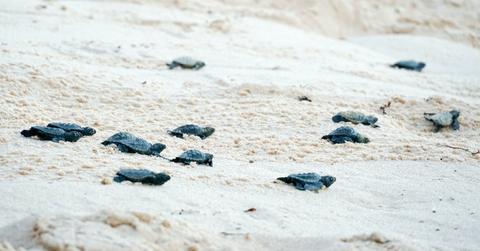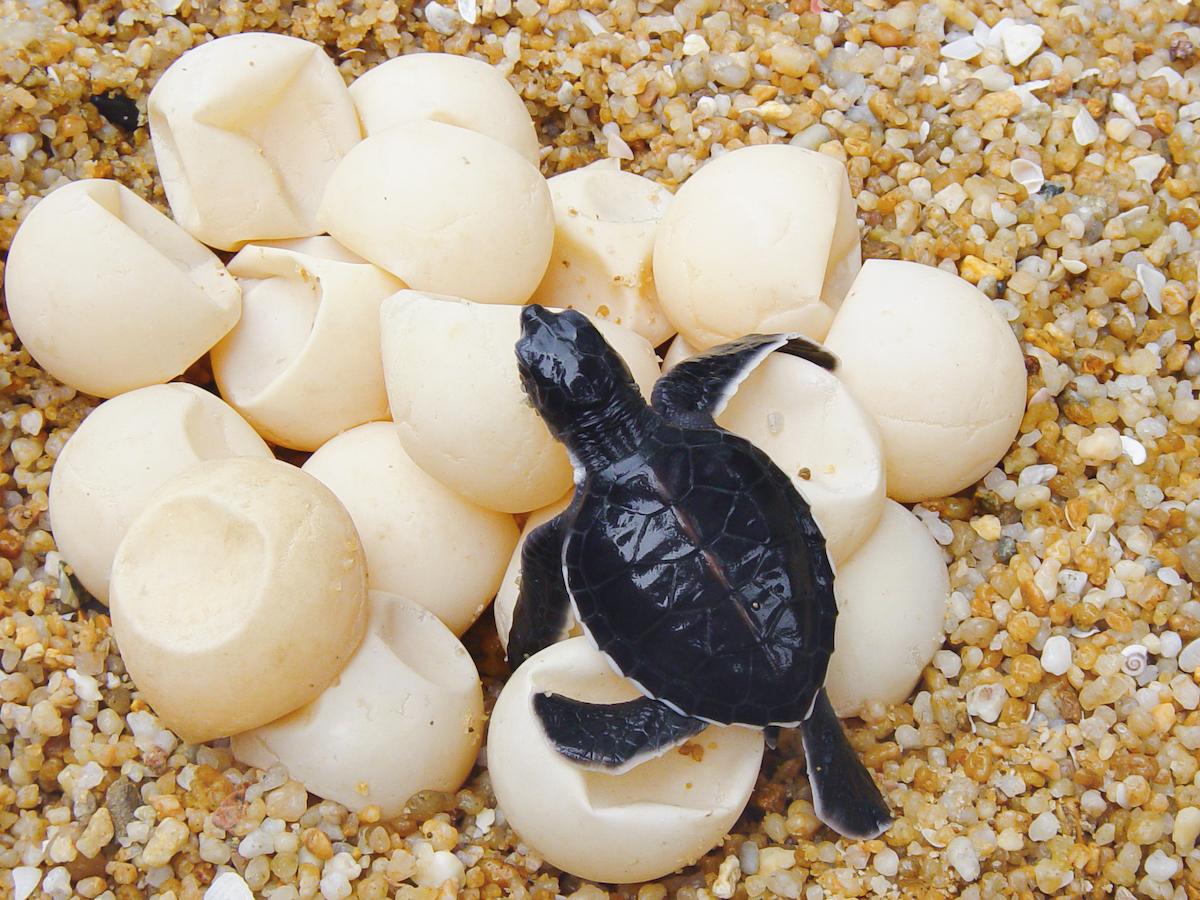In Mexico, Vulnerable Sea Turtles Are Nesting at Record-Breaking Rate
Coronavirus beach closures have caused a record-breaking number of endangered sea turtles to nest on a Mexican beach.
Updated Nov. 2 2020, 12:07 p.m. ET

When coronavirus lockdowns first went into effect, there was one silver lining the internet could not stop talking about: animals “returning” to nature in the absence of human activity. Now, in November 2020, lockdowns have become a way of life — and people are still observing this miraculous pattern. Most recently, a record-breaking number of vulnerable sea turtles nested on a Mexican beach.
The olive ridley sea turtle population is on the up-and-up in Mexico.

The turtle species in question is the olive ridley sea turtle, which is classified as vulnerable by the WWF. As reported by Arizona Public Media, a turtle conservation group called Tortugueros del Desemboque recently released more than 2,250 baby olive ridley sea turtles into the Gulf of California, aka the Sea of Cortez. The group is run by the Indigenous Seri community, which is based in the Mexican state Sonora.
The community typically only releases up to 1,000 baby turtles each year, and Tortugueros del Desemboque coordinator, Mayra Estrella Astorga believes that even more turtles could hatch in the next few weeks. She attributes this “miracle” to the lack of tourists and fishers on Mancha Blanca beach, located in El Desemboque, a small Seri town in Sonora, Mexico.
"This year has been one of the hardest for our community. The pandemic brought sickness and death to our people and complicated the economic situation here,” Astorga told Arizona Public Media. "And that’s why we are so happy that, in the middle of this tragedy this miracle of nature happened as a result of fewer fishing boats and tourists. But also through the efforts of the community."
So while 2020 will go down in history as a pretty bad year for many of us, at least these turtles have caught a break.
Olive ridley sea turtles are classified as vulnerable.
As mentioned above, the WWF classifies olive ridley sea turtles, who are named for their olive-colored shells, as vulnerable, which means they are “facing a high risk of extinction in the wild.” What’s interesting, however, is that the species is actually the “most abundant sea turtle in the world,” with an estimated 800,000 nesting female olive ridley sea turtles each year, according to NOAA Fisheries.
How can the most abundant sea turtle species on Earth also be classified as vulnerable? As explained by NOAA Fisheries, historically, the Pacific Ocean was estimated to contain 10 million olive ridley sea turtles. But due to humans poaching the important creatures in recent decades for sea turtle eggs, meat, and leather, the olive ridley population has massively gone down.
Surprisingly, sea turtle products are the second-most frequently poached wildlife products trafficked from Latin America to the U.S., according to InvestEGGator, a company that makes decoy sea turtle “eggs” outfitted with GPS trackers to help catch poachers in the act.
Animals “returning to nature” has become common during the coronavirus pandemic.
During COVID-19 lockdowns, sea turtles also flourished on Brazil’s empty beaches, and sea turtles even broke nesting records on Thailand beaches.
Other animals who’ve enjoyed the absence of humans as of late include lions in South Africa, pink dolphins in Hong Kong, and dolphins in Italy. The phenomenon even became a meme in early coronavirus days, underscored by tongue-in-cheek phrases like “nature is healing” and “we are the virus.”